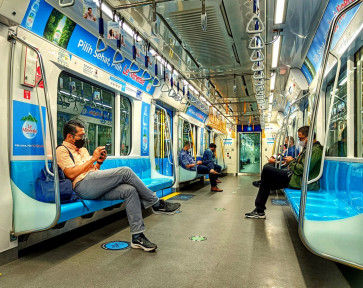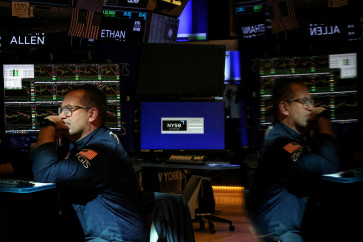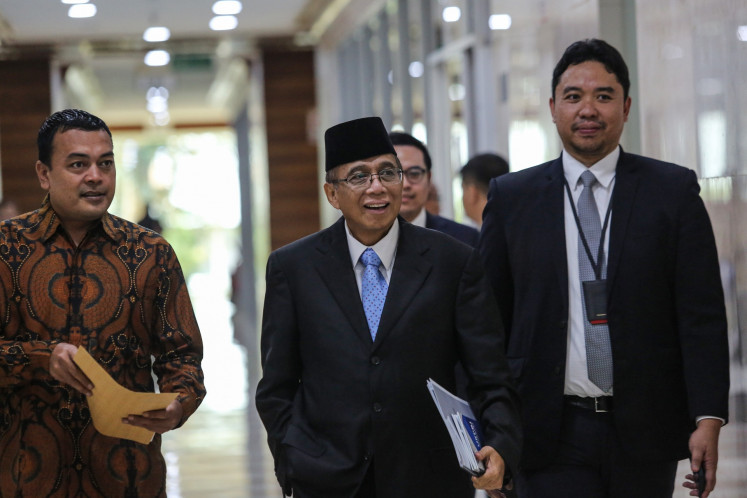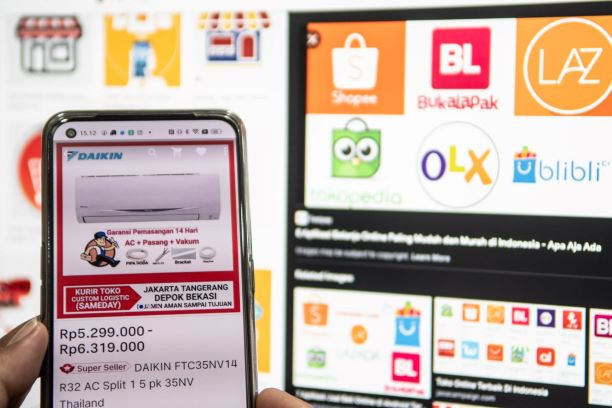Popular Reads
Top Results
Can't find what you're looking for?
View all search resultsPopular Reads
Top Results
Can't find what you're looking for?
View all search resultsIndonesia sees trust decline
Last year was a challenging time for Indonesia and many emerging markets
Change text size
Gift Premium Articles
to Anyone
L
ast year was a challenging time for Indonesia and many emerging markets. Economic growth slipped to its slowest pace in years, as China's foot slipped off the economic accelerator and investors pulled or held back in anticipation of an interest rate hike from the US Federal Reserve.
The resulting decline in commodity prices ' one of the largest drivers of Indonesia's economic growth ' combined with the rupiah declining by over a tenth against the US dollar, has certainly put the brakes on Indonesia's economic aspirations, and moreover the post-election optimism that ushered in President Joko 'Jokowi' Widodo and his new government.
Indonesia also continued to face its perennial problems ' choking levels of haze, political intrigue, continuing legal and regulatory uncertainty and high-level corruption scandals.
Despite the best efforts of President Jokowi, the administration has found it difficult to steer Indonesia over these humps and start addressing the issues of regulatory clarity and infrastructure upgrades needed to win confidence from international investors.
However, as the slowdown began to bite towards the end of 2015, the government has certainly been accelerating its reform plans by pushing through a raft of new measures designed to cut red tape and replace underperforming ministers, designed to lure investments and gain trust as a dynamic economy.
It is within this context that we examine the eighth annual Edelman Trust Barometer results for Indonesia this year ' the firm's 16th annual trust and credibility survey looking at trust in business, government, media and NGOs across 28 markets across the world.
The research surveyed 1,150 people from the 'general population' in Indonesia, plus an additional 200 from the 'informed public' (college educated, top 25 percent of household income and reporting significant media consumption and engagement in business news).
The 2016 Edelman Trust Barometer reveals a fall in trust across the institutions of government, business, media and NGOs in Indonesia. Among the general population, trust levels in business remains stable, while trust in other institutions have seen a significant drop.
The informed public also recorded a decrease in trust across all four institutions. These results perhaps reflect Indonesian's anxieties of where their country is headed and temper the optimism that we saw last year.
Revealingly, trust in government is at 58 percent among the general population, seeing a seven point drop from last year's post-election high of 65 percent.
The post-election bounce that we recorded last year has now fallen back to the more normal numbers we have seen in recent years ' mimicking the trend of other countries such as Australia, India and Japan ' that all saw a trust rise in government after their elections and then a decline the following year. Optimism about what Jokowi could achieve as he took office has been followed by concerns over the slow pace of reform, and the realities of Indonesian politics have seen his post-election trust bounce taper out.
However, there is definitely an opportunity for the administration to show it is walking the talk by welcoming foreign investments that create more local jobs, clamping down strongly on corruption and ensuring a climate of legal and business certainty.
Media and NGOs also recorded lower trust this year, with a five and seven point decrease to 63 percent and 57 percent respectively. After many years of trust rises and optimism running counter to worldwide and regional trends, our trust results this year show that global geo-political and economic uncertainty is being felt in Indonesia.
This means that working to build trust in Indonesia ' in the context of this uncertainty ' is more important than ever for organizations, companies and brands to protect, promote and evolve their reputations.
________________________
Indonesians want business leaders to lead the agenda on ethical and open practices.
Business continues to standout as Indonesia's most trusted institution. Furthermore, for business and business leaders, the results showed that 7 out of 10 Indonesians believe that business is most trusted to keep pace with changing times and conditions.
Business leadership and the influence of the CEO was also a key theme this year, with 79 percent of Indonesian respondents stating that CEOs should be personally 'visible in discussing societal issues' ' a telling 10 points higher than 'discussing financial results' at 69 percent. The results also reveal that Indonesians believe that CEOs focus too much on 'short-term financial results' and 'lobbying' and not enough on 'job creation' and 'positive long-term impact.'
The data also points to high public expectations for CEOs to exhibit ethical, transparent behavior and a commitment to protecting and improving the environment ' in the wake of last year's Indonesian haze disaster.
These results demonstrate that Indonesians want business executives to play a greater role in discussing and solving societal issues and challenges. After another year of high-level figures behaving less than ethically, Indonesians want business leaders to lead the agenda on ethical and open practices.
In other results, the influence of peer-driven media in Indonesia was preeminent this year ' social media and online search are now the top two 'most-used sources' for general news and information ' ahead of TV, newspapers, blogs and magazines.
The interesting divergence here is in terms of 'trust in sources' for general news and information ' search engines are the most trusted source at 75 percent, followed by traditional media, online-only media, owned media and social media.
The results this year show that online search is now one of the first places people turn for news and information, alongside social media, but more importantly still, that online search is also the most trusted source. This means that news sources on the first page of any search engine has taken on even greater influence. It also shows why effective search engine optimization and investing in branded digital and social content is so important.
For 2016, companies and organizations in Indonesia have their work cut out to earn trust and win over a more cautious and cynical Indonesian public.
The message is clear ' the people want businesses to lead and speak out on societal issues and to make progress where government cannot. Indonesians are looking for leadership from the business community to drive the country forward through these turbulent and uncertain times, and the opportunity is ripe for businesses to do so.
____________________________________
The writer is CEO of Edelman Indonesia.










